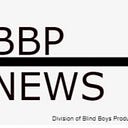A few weeks ago president Biden released his American Jobs Plan to make the infrastructure better and get Americans back to work. The price tag for this plan is nearly 2.3 trillion dollars. While this is being negotiated in Congress to try and get this passed President Biden said he is willing to negotiate, but he’s not going to accept doing nothing to fix our infrastructure.
The White House released a state by state plan that highlights what needs to be done in all 50 states, including the District of Columbia. The fact sheets highlight how many roads and bridges need repairs, the percentage of those without broadband internet, and many other things.
In this article we are going to focus specifically on the state of Idaho and what needs to be done in the state to make it better. When looking at the overall infrastructure it earned a C- from the infrastructure report card.
According to the fact sheet, there are 286 bridges and more than 1,102 miles of highway in need of repairs. Since 2011, the time residents spend commuting has increased by 11.2%, and on average, drivers spend 394 dollars per year on repairs to their vehicles due to the poor conditions of the roads.
Public transportation is also discussed here. Idaho residents are spending an extra 150.2% of their time commuting. Along with this, non-white households are 1.3 times more likely to use public transportation as their main means of commuting. 33% of the trains and other transit vehicles in Idaho have passed their usable lifespan.
Over the past 10 years, Idaho has experienced 11 extreme weather events, which has cost the state up to 2 billion dollars in damages. In order for Idaho to have clean drinking water within the next 20 years, they require 1.3 billion dollars in additional funding.
Broadband is a key part of this infrastructure bill. 24% of the residents in Idaho live in areas where there is no reliable broadband internet. 64% of Idaho residents live in areas where there is only one company that provides reliable internet. Reliable internet could very well be too expensive for some, as 11.6% of households in the state are without an internet subscription.
Idaho is experiencing a lack of available and affordable housing, which is in part causing 84,000 renters to be rent burdened, meaning that more than 30% of their paycheck is going towards paying rent. An average low-income family in the state is spending 6–8% of their paycheck on electricity costs.
Childcare is another part of the American Jobs Plan. In Idaho, 49% of residents live in areas where childcare is not available to them. There is also a 301 million-dollar gap between the amount of money that schools have access to for necessary repairs and upgrades and the amount of money that is actually required for these repairs.
Manufacturing accounts for more than 12% of the total output in Idaho, employing 70,000 workers. This is equal to 9.3% of the state’s workforce. In 2019, 113,181 residents were employed in the field of clean energy. Idaho is home to more than 122,067 veterans, 8.7% of them being women, and 47.1% of them being over the age of 65.
To see what is exactly in the bill and how much money is in each section, listen to this episode of Blind Boys Politics.
